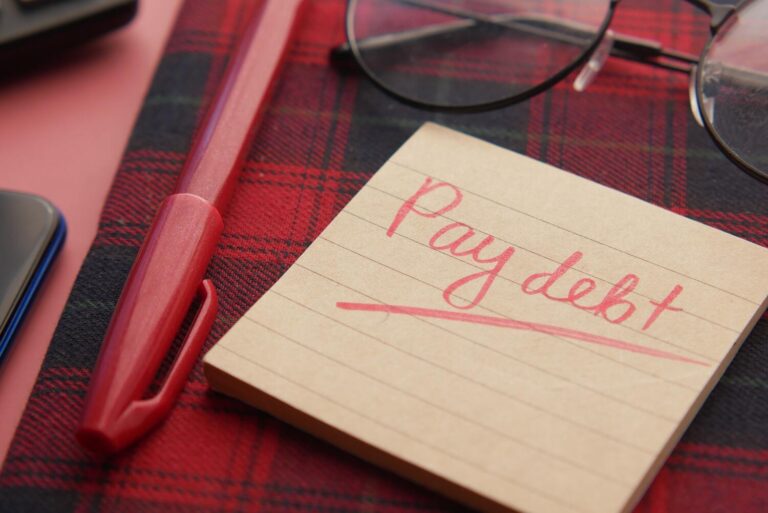4 Strategies to Help Pay Off Medical Debt

Illness and injury are an unfortunate (and scary!) fact of life, but once you’re patched up after surgery or a lengthy hospital stay, you want to focus on your recovery, not worrying about how on Earth you’re going to pay off any medical debt.
Medical debt can be overwhelming, and according to a 2018 study published by Health Affairs, it’s not just older Americans who are managing debt from medical bills.
It is actually Millennials who are racking up the most medical debt—11% of all people who had a medical bill go to collections in 2016 were just 27 years old. So how can you pay off medical bill debt and hopefully stay out of collections? There are several different options available that may help you manage your medical debt with minimal pain, so you can focus on feeling better.
Before we dive in, we should mention we realize the nature of medical debt is often very sensitive. These strategies are merely a collection of tips and commonplace ideas found through our research on the internet.
This article shouldn’t be considered advice in any sense; every person’s situation is unique, which means it’s always a good idea to check in with a professional before taking action yourself. With that said, let’s dive into what we found.
1. Medical Debt Payment Plans
Medical care can be expensive, especially if you’re facing a chronic condition with ongoing costs or major surgery or hospital stay. One plan of action you might consider is contacting your medical provider to see if they offer payment plans.
Some providers offer payment plans that allow you to make payments on your medical bill over time, paying it off in installments. Talking to your healthcare provider or a hospital billing department can be a great first step to figuring out if there is a payment plan you can take advantage of when it comes to medical bill debt.
Of course, one major downside to payment plans is that not all medical providers or medical offices offer payment plans and may require full payment when services are rendered.
Likewise, some medical providers may only let you set up a payment plan in advance, which means that a payment plan might not be a solution for any medical debt you’ve already accrued. And of course, some payment plans may still be too prohibitively expensive to pay every month, even if you’re paying overtime.
2. Using A Medical Credit Card
If you’re looking at a medical bill that you can’t pay out of pocket, you may be tempted to reach for a credit card. Before you hand over whatever card is in your wallet, you might want to consider looking into credit cards specifically designed to be used to pay for medical care.
Medical credit cards sometimes offer low or no interest for a predetermined period of time, which means that you may be able to pay your medical bill with the credit card and then pay off the card before it accrues interest.
But be careful—if you can’t pay off the credit card before the interest-free period is over, you might face high-interest charges, which could actually end up making your medical bills more expensive.
Consider pulling out the calculator and doing some math to see if you can afford to pay off your medical bills during the interest-free period before you decide to put the costs on a medical credit card. This can help you determine how useful a medical credit card might be in your specific situation.
3. Negotiating Directly With The Hospital
If you’re facing a big bill from the hospital, one thing to consider is reaching out directly to the hospital billing department to see if you can negotiate the total amount of your medical bill.
While it’s not precisely like haggling for a used car, most hospitals have a financial department that might be able to help you determine if you qualify for any cost deductions or discounts.
One other thing to keep in mind is that cash might just still be king. Some hospitals and medical providers might give you a discount just for paying in cash. This can be a good option if you can afford to make the payments in one lump sum and want to avoid any extra fees.
4. Taking Out A Personal Loan
Taking out a personal loan might also be a solution to managing medical debt. While personal loans are often overlooked, they may offer more benefits than credit cards, like lower interest rates and more flexibility.
In order to use a personal loan to pay off medical bill debt, you’d borrow money from a lender which you’d use to pay your medical debt, then you’d pay that money back to the lender over time in regular monthly payments. Like other types of loans and financing, lenders generally look at your personal financial history and ability to repay (among other factors) when deciding if you qualify for a personal loan and determining your interest rate.
Unlike other types of financing, however, a personal loan can be used for almost everything—from paying off a hospital bill to paying for your groceries while you’re out of work due to an injury or illness.
If you’re wondering how to clear medical debt from multiple sources, a personal loan might help. You may be able to use a personal loan to consolidate numerous medical debts into one monthly payment. This could work by taking out a medical loan and using it to consolidate different medical bills, which allows you to focus on paying off just one debt instead of managing multiple varying deadlines every month.
When searching for personal loans to pay for medical debt, be sure to read the fine print. Some providers may charge origination fees to process your loan, or prepayment fees if you pay off your loan early.
Also be wary if interest charges in your search, as high-interest charges could add more money paid over the life of the loan.
One other potential benefit of using personal loans is that the application process is relatively simple and you can usually find out your eligibility pretty quickly. With SoFi personal loans, it just takes a few minutes to check your rate. And with SoFi, there are no hidden fees. That means no origination fees, no prepayment fees, and no late fees. Ever.
There’s no way around it—medical bills can be hard to deal with. But making a plan for repayment you help you get on your way to financial and physical wellness.
Disclosures:
External Websites: The information and analysis provided through hyperlinks to third party websites, while believed to be accurate, cannot be guaranteed by SoFi. Links are provided for informational purposes and should not be viewed as an endorsement.
Financial Tips & Strategies: The tips provided on this website are of a general nature and do not take into account your specific objectives, financial situation, and needs. You should always consider their appropriateness given your own circumstances.
SoFi Loan Products
SoFi loans are originated by SoFi Lending Corp. or an affiliate (dba SoFi), a lender licensed by the Department of Financial Protection and Innovation under the California Financing Law, license # 6054612; NMLS # 1121636 Opens A New Window.. For additional product-specific legal and licensing information, see SoFi.com/legal.
SOPL19042
This post is originally on SoFi.






